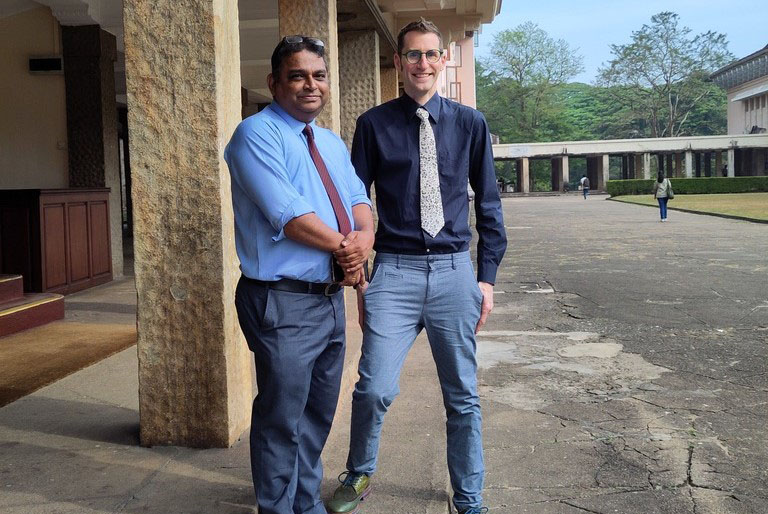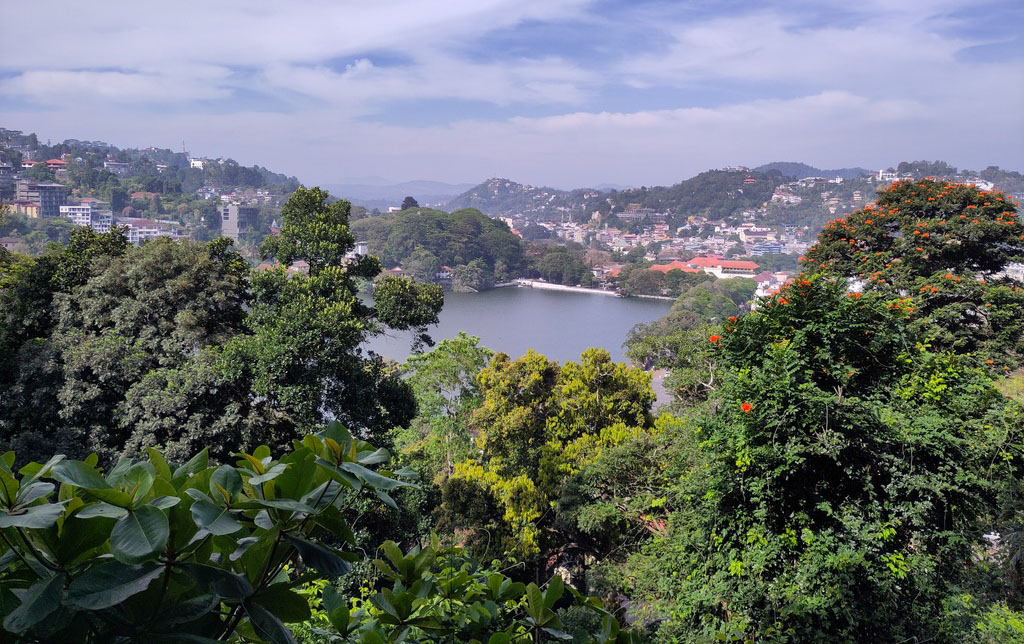
‘A golden opportunity’: USask collaboration spans global borders
When University of Saskatchewan (USask) veterinary microbiologist Dr. Joe Rubin (DVM, PhD) and graduate student Dr. Roshan Madalagama (BVSc, PhD) first connected, they never knew that their working relationship would eventually span over 10 years and two continents.
By Rigel SmithRubin, a faculty member at the Western College of Veterinary Medicine (WCVM) in Saskatoon, Sask., and Madalagama, principal scientist at the Veterinary Research Institute (VRI) in Peradeniya, Sri Lanka, first connected online in 2012. One year later, Madalagama made the move from Sri Lanka to Saskatoon to pursue his PhD degree at the WCVM as Rubin’s first ever graduate student.
“There was a very special relationship that formed,” said Rubin. “We really developed well together as a new faculty member and a grad student.”
The two were working together studying antimicrobial resistance (AMR), an issue deemed a major global threat by the World Health Organization. AMR is caused when bacteria, viruses, fungi and parasites stop responding to antimicrobial medicines, such as antibiotics. The issue is driven largely by the misuse and overuse of antimicrobial drugs in both humans and animals.
While AMR affects countries in all regions and economic states, the rates are especially high in low- and middle-income countries such as Sri Lanka.
“As we were working together more and more, [Roshan] started to share his experiences in Sri Lanka and some of the challenges they face,” said Rubin. “It was kind of obvious from the very beginning that we wanted to do something together in the future.”
These challenges range from lack of resources to inhibited laboratory capacity—two major factors that hinder diagnostic efforts and ultimately reduce researchers’ ability to combat AMR.
“Laboratory resources and instruments are lacking here,” said Madalagama. “I always tell my students, if I work six months in Sri Lanka, I would be able to complete the same amount [of work] in two weeks in Canada.”
Thanks to funding from the USask Global Community Service Fund, the two colleagues are now responding to these challenges through a global collaboration. The university’s fund offers a maximum of $20,000 to support new collaborations and engage with communities to improve welfare and quality of life.
The two-year project, which began in summer 2023, is aimed at improving laboratory capacity, building research capacity and providing continuing education to the veterinary community in Sri Lanka through guest lectures and sharing of teaching materials and resources.
The first endeavour to come out of the partnership was a lab manual, which is accessible online from anywhere in the world.
“The idea there was just to start with really simple things,” said Rubin “If people are doing the basics correctly, that actually goes a long, long, long way.”
Madalagama says this resource, launched in March 2024, has already helped make improvements in Sri Lankan labs.
“Now the regional lab, they do follow the right protocol,” said Madalagama. “Now they have a guideline and they do the right testing.”

Research trips are another major component of their collaboration. Rubin travelled to Sri Lanka in March 2024 and is planning another visit in 2025. These trips, which are integral to the collaboration, include teaching sessions at the local veterinary school, educational collaborations, and assessment and training sessions both in regional labs and at the VRI.
“There’s definitely the desire on the ground to make some big improvements,” said Rubin. “There’s a wealth of people that are just waiting to be given access to resources.”
But the trips don’t just go one way. Two research assistants from the VRI in Sri Lanka will travel to the WCVM in September 2024 for a month of training and education alongside Rubin in the same lab where Madalagama worked as a graduate student.
“This is a milestone in my career at my research institute, the first time [the research assistants] are going to a developed country,” said Madalagama. “Some of them have been working for 30 years. It’s a golden opportunity for them.”
Initially, the budget only allowed for one research assistant to make the trip to Canada. But thanks to additional funding from the World Organisation for Animal Health (WOAH), the milestone trip can be extended to two assistants. They will take part in a small research project during their time at USask, but Rubin says the trip goes far beyond the study’s scope.
“Really the goal is that we’re using research as an opportunity for training,” said Rubin. “It will be about making sure that these two visitors have a really solid grasp of all the techniques we can do. Then they can repeat it when they go home and train other people.”
Rubin considers this phase of the collaboration as just the beginning.
“At the end of these two years, the hope is to have a plan as to what to do next,” said Rubin. “I don’t see this as having an end or completion—I hope it can be an ongoing thing.”
Ultimately, Rubin and Madalagama agree that global collaboration is necessary to continue to understand and combat the serious issue of AMR.
“If something emerges in Sri Lanka, within a very, very short time it moves to Canada,” said Madalagama. “But if you work together, then maybe we can mitigate these issues and minimize this risk.”
For more information on the collaboration, check out this video.
Together, we will undertake the research the world needs. We invite you to join by supporting critical research at USask.
